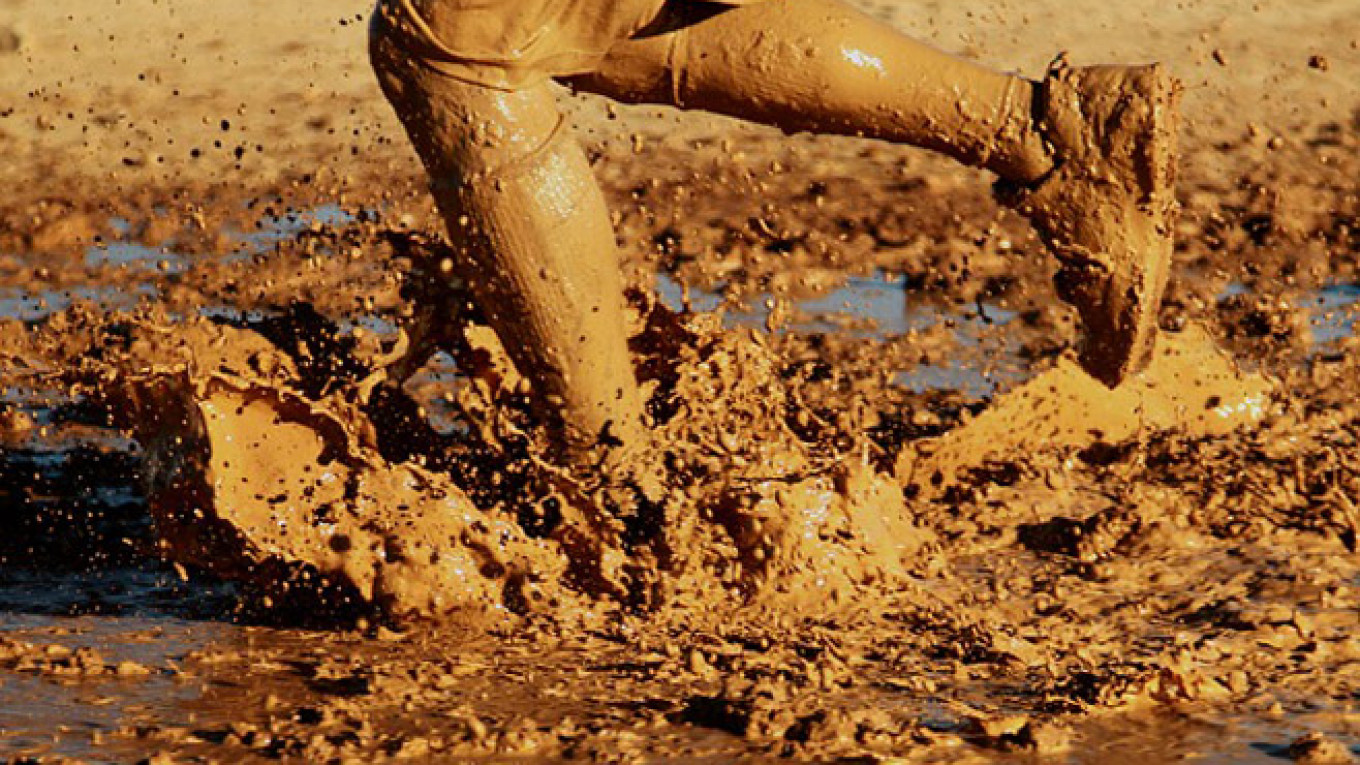Грязну́ля: grubby, filthy little creature
If you've lived in Moscow for a while, you already know the good and bad things about spring. The good things are light and warmth. (Hallelujah!) The bad things are all those unspeakably yucky, slimy, repulsive bits of mud and I-don't-know-what that have fermented over the winter and burbled to the surface once the snow cover melts away. Фу гадость. (Ew! Yuck!) If you want to know what to call that stuff — Russian to the rescue.
Let's start with slime. One terrific, onomatopoetic word for all things slimy is слизь (slime, mucous), which even sounds sleazy-slimy. Things that are slimy are said to be покрыты слизью (covered with slime). Think: snails and fish and body parts. Things that are slimy-slippery are скользкие. Think: the last sheets of ice in the courtyard slathered in dog poop. Осторожно! Тут очень скользко! (Watch out! It's really slick here!) Things can also be slippery in a figurative sense, like скользкий тип (shifty character, weasel) or скользкая тема (a tricky topic).
Things that are slimy-sticky are вязкие. Think: glue-like mud or marshy fields. This is the kind of wet mud that seems to grab on to your boot and suck you down. Глубоко уходят ноги в вязкую, сырую землю. (Your feet go deep into the mire of damp earth.) Sometimes вязкий can be used figuratively to describe anything that swallows something up: Тишина была густой и вязкой; она деформировала голоса. (The silence was thick and viscous; it distorted the sound of voices.)
Things that are more sticky than slimy are липкие. In my experience, small children are often липкие — but in a nice way, of course. As a basic rule, липкий is stickier than вязкий: Грязь под ногами — жёлтая, липкая. (The mud underfoot is yellow and sticky.) And it can refer to sticky body fluids: Я весь в липком поту. (I was completely covered in clammy sweat.) Лицо у неё запачкано в липкой крови. (Her face was stained by sticky blood.)
Things that are dirty-slimy range from the washable грязные (dirty, from грязь — dirt, mud) to the hopeless чумазый (grubby, filthy). If you drop something into the roiling, fetid mud, it comes out запачканный (soiled), замаранный (filthy, fouled), нечистый (unclean), or perhaps simply чёрный (black). If you drop a person into the mud — or if someone has a tendency to caper, fall, or play in the mud — you get a грязнуля (a filthy little pig). This is basically an affectionate term, but still describes someone who is dirty or messy.
Sometimes this is someone who is not tidy: Одно из двух: или я такая грязнуля, или в моих бумагах кто-то рылся. (It's one of two things: either I'm a total pig or someone has been pawing through my papers.) But most of the time it's a dirty child or adult: Жутко стыдно, но ни один таксист такую грязнулю к себе в салон не пустит. (It is incredibly embarrassing, but not a single taxi driver would let such a grubby little creature into the car.)
And finally, things that are dirty, slimy or sticky often smell really bad. Here the exclamation ой (ew) is a necessary intensifier: Ой, воняет! (Ew, it stinks!) Ой, как дурно пахнет! (Ew, it smells terrible!) Ой, что за ужасный запах? (Ew, what's the terrible smell?)
If you can't find the words, a scrunched up nose or a quick sniff and intense frown will do the trick. Фу.
Michele A. Berdy, a Moscow-based translator and interpreter, is author of "The Russian Word's Worth" (Glas), a collection of her columns.
A Message from The Moscow Times:
Dear readers,
We are facing unprecedented challenges. Russia's Prosecutor General's Office has designated The Moscow Times as an "undesirable" organization, criminalizing our work and putting our staff at risk of prosecution. This follows our earlier unjust labeling as a "foreign agent."
These actions are direct attempts to silence independent journalism in Russia. The authorities claim our work "discredits the decisions of the Russian leadership." We see things differently: we strive to provide accurate, unbiased reporting on Russia.
We, the journalists of The Moscow Times, refuse to be silenced. But to continue our work, we need your help.
Your support, no matter how small, makes a world of difference. If you can, please support us monthly starting from just $2. It's quick to set up, and every contribution makes a significant impact.
By supporting The Moscow Times, you're defending open, independent journalism in the face of repression. Thank you for standing with us.
Remind me later.








